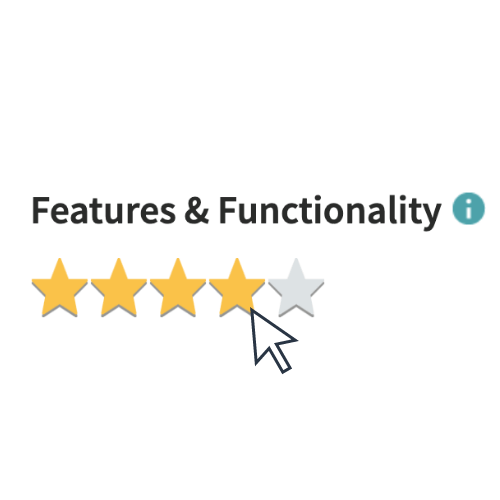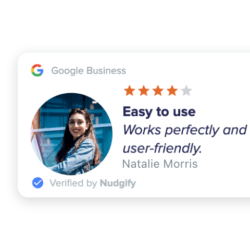Social Proof in Marketing leverages one of the most powerful psychological effects we experience in our everyday lives. It is the reason why trendy bars make people queue outside and bartenders “salt” tip jars with their own money. This article shows you how the biggest brands use Social Proof in their digital marketing.
Top 16 Ways To Use Social Proof in Marketing in July 2024
- What is Social Proof
- 16 Ways To Use Social Proof In Marketing
- Display Customer Testimonials on your Homepage
- Show Industry Awards and Rankings
- Gather Expert Reviews and Endorsements
- Add Customer Reviews To Product Pages
- Address Concerns With UGC
- Create Urgency By Highlighting Demand
- Incorporate Social Media Into Product Marketing
- Provide Star Ratings To Make Comparisons Easier
- Use Case Studies To Demonstrate Benefits
- Create In-Groups
- Use “Sales Pop” Notifications
- Tag Popular Products To Prevent Choice Paralysis
- Embrace Themes Their Customers Identify With
- Provide “People Also Bought” Recommendations
- Create Choice Closure For Purchases
- Incorporate Popularity Into Your Branding
- Final Words about Social Proof and Marketing in July 2024
Social Proof marketing is proven strategy for eCommerce and retail websites. For example, adding reviews and testimonials to a product page has been shown to increase order values by an average of 31%. Similarly, creating live Social Proof by showing information about recent sales can generate up to 15% more conversions from the same amount of traffic. This article explains why Social Proof is so effective for digital marketing and shows you how the biggest brands use it to get more sales and sign-ups.
Social Proof is a psychological effect that causes us to imitate the people around us. Because of the effect, we often conform to the expectations and opinions of our peers without considering them rationally. It has a greater impact on our behaviour in situations where we are unsure about a decision or what to do.
E-commerce websites like Amazon and Ebay incorporate Social Proof into their product pages because it helps customers choose the best items without seeing or touching them. The fact that customer reviews are available for most items is one reason why Amazon converts four times more browsers than an average eCommerce website. Retail brands like Target and Next also use Social Proof to increase their conversion rate. In their case, the effect is used to reassure customers, provide user-generated content about their products, and reinforce the shopping context.
Elite brands have an advantage when it comes to Social Proof marketing because they have more reviews and activity to display. However, smaller businesses can take advantage of the same effects using review platforms and Social Proof apps. There are over 200 Shopify plugins for “Creating Social Proof” in the platform’s app store, giving any store a way to build trust and show how popular their products are.
Social Proof marketing allows website designers to make valuable information available at a glance. It also means they can highlight the popularity of their products and the currency of their brand without seeming biased. Because of the credibility and prestige it conveys, Social Proof is an essential part of brand building. Here are 32 ways the biggest brands do it.
Used by: Intercom Best For: SaaS and services
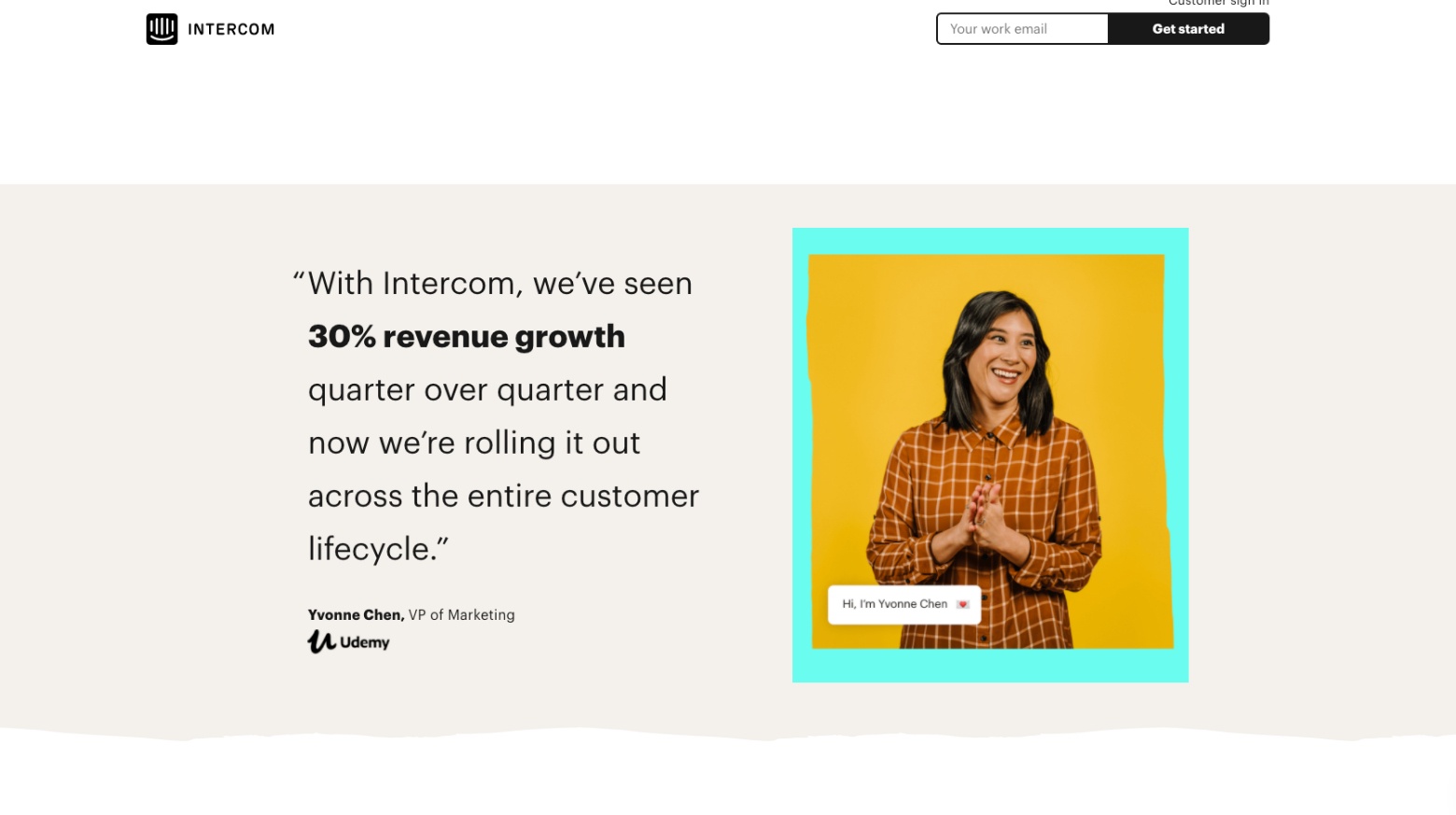
According to 91.9% of business owners, the value of a business is strongly related to the reputation of its brand. However, brand management is not just about PR initiatives, it is also about the way a business presents testimonials and endorsements to its customers. Even market-leaders like Intercom use authoritative testimonials on their homepage to leverage Social Proof for potential customers.
Consumer reviews are an effective way to build trust in any product or a business. They are most effective if you can use images of real customers and, since 84% of people discount reviews older than 3 months, make sure they are as recent as possible.
Used by: Samsung Best for: Technology brands and retailers
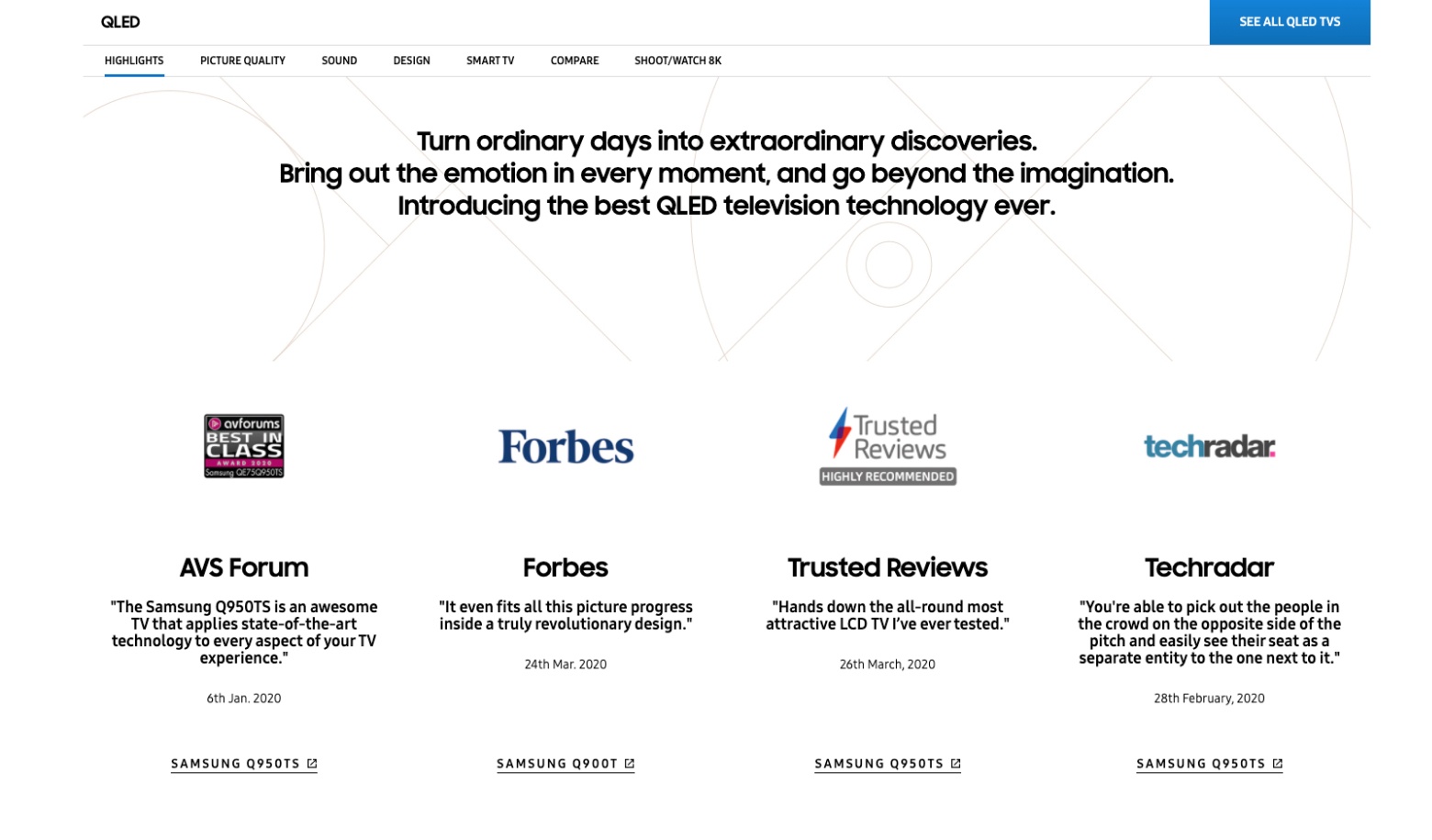
Displaying the corporate logos of ratings and reviewing agencies alongside an industry award gives you powerful brand authority. It is particularly important for products with new and disruptive features that customers are unable to judge online. In the example above, Samsung displays recent reviews and awards to show that its new television system has a real effect on the viewing experience.
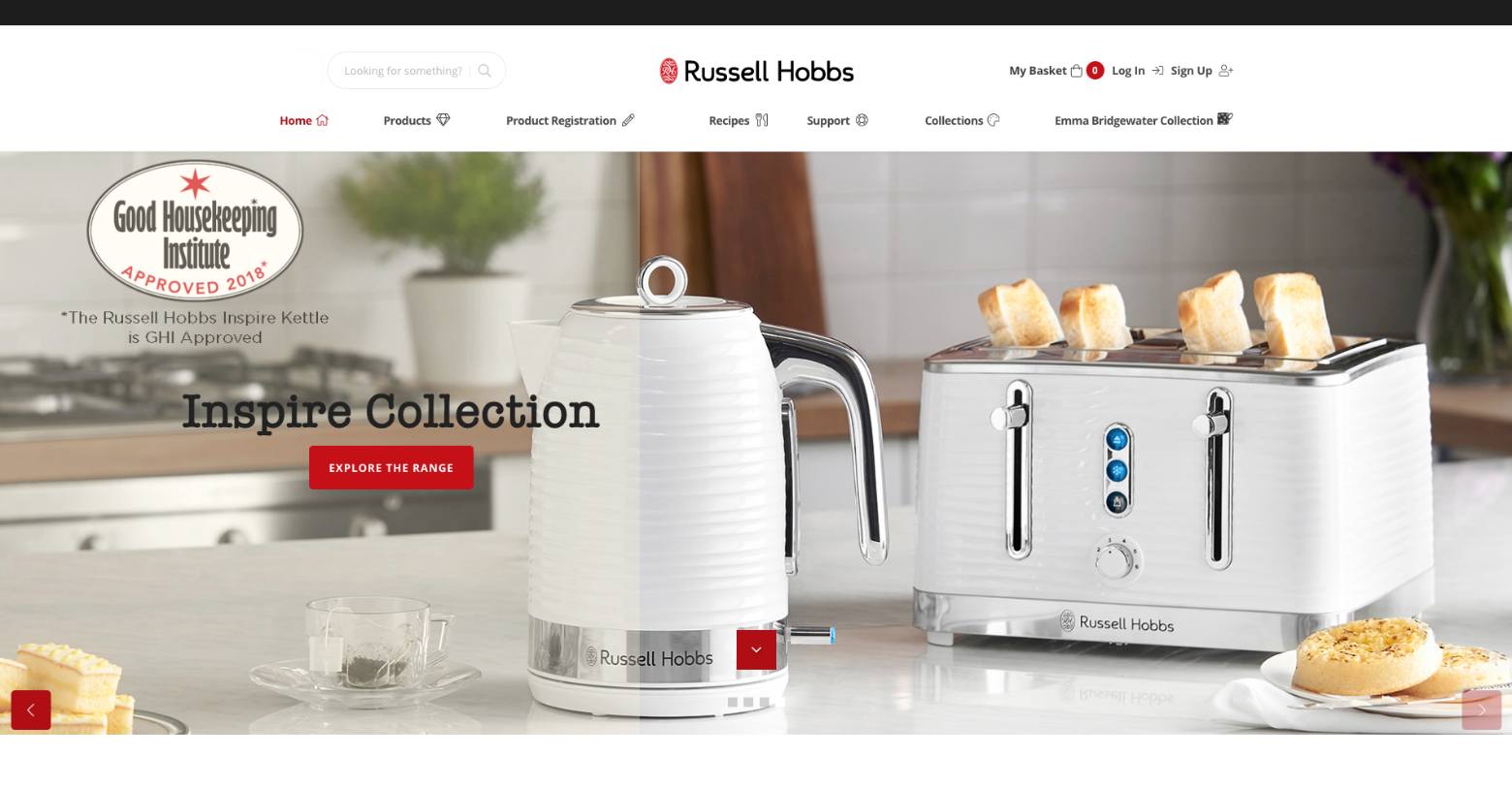
This example, from kitchen appliances retailer Russell Hobbs, uses an award from Good Housekeeping to justify its premium pricing. Endorsements from recognised consumer services organizations like Good Housekeeping, Which or Trusted Reviews can have a dramatic effect on sales.
Used by: Sensodyne Best for: Medical and personal care products
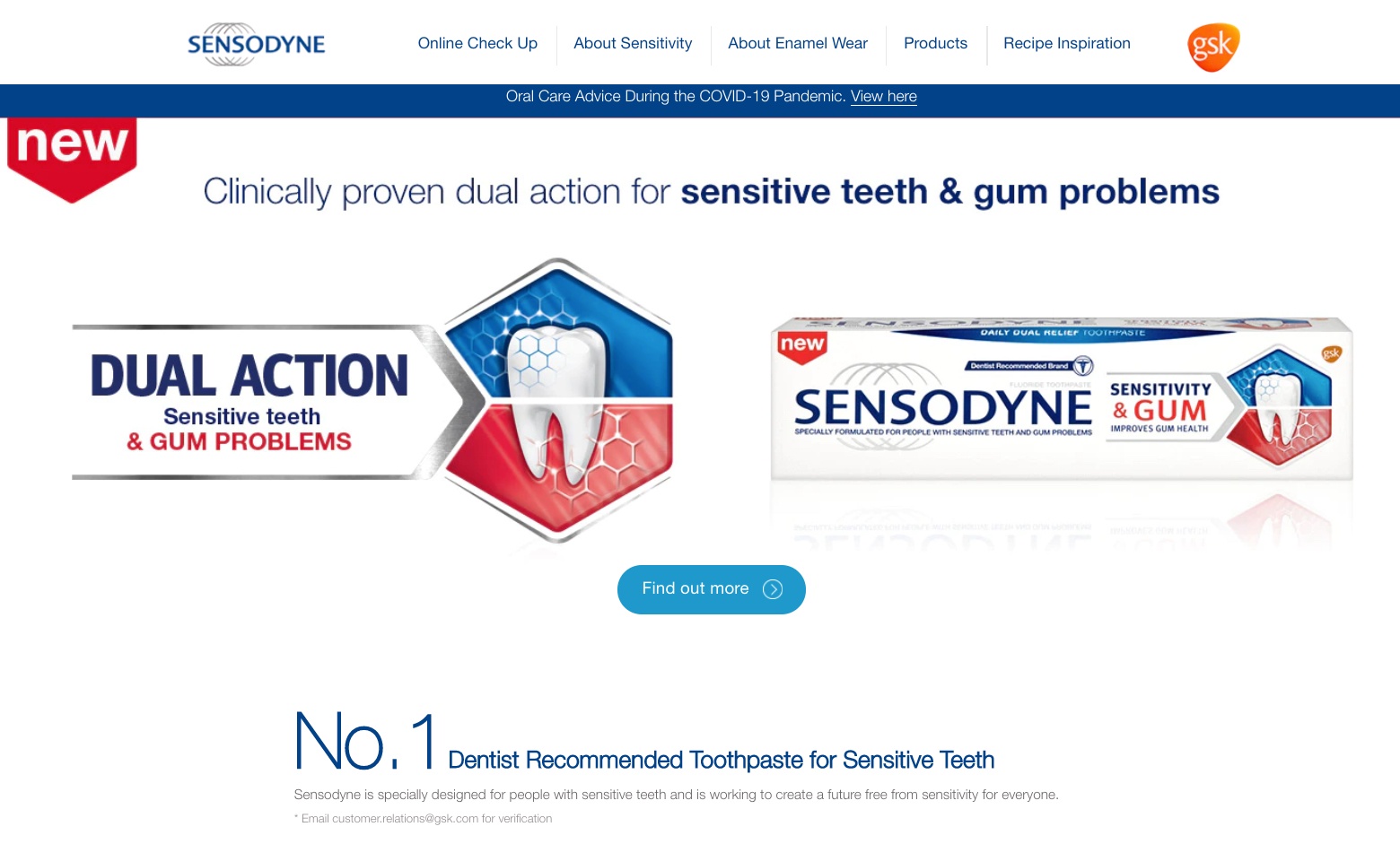
When people feel like they don’t have enough information to make a sensible choice, Social Proof helps them to make decisions. That’s why brands like Sensodyne place such an emphasis on professional endorsements. In 2007, Sensodyne was challenged by the Advertising Standards Authority over a television advert which implied that medical professionals recommend the toothpaste for treating sensitive teeth. A similar complaint was made against Colgate due to a misleading claim that their product was endorsed by 80% of dentists. Regardless of these official complaints, professional endorsements provide such a significant advantage that companies like Colgate and Sensodyne are willing to risk public criticism.
Used by: Marks and Spencer Best for: eCommerce and retail websites
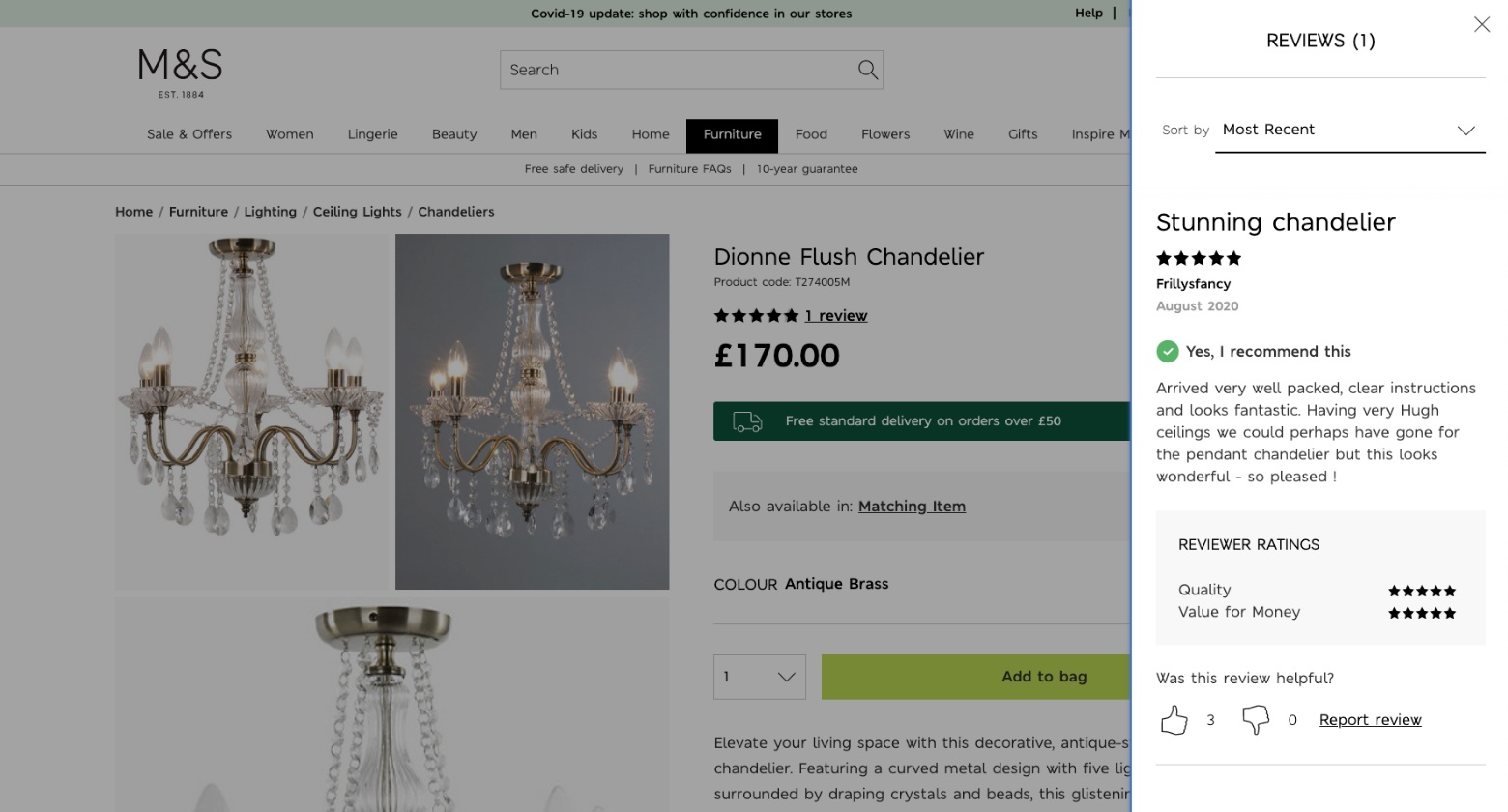
According to a survey by the Spiegel Research Centre, 95% of customers say they read reviews before making a purchase. Because so few purchases take place without a customer checking the reviews, it makes sense to make them easily accessible from within the purchase funnel. By placing reviews above the fold on a product page, eCommerce and retail sites can create a more focused customer journey.
Used by: Amazon Best for: eCommerce, fashion retailers and luxury brands
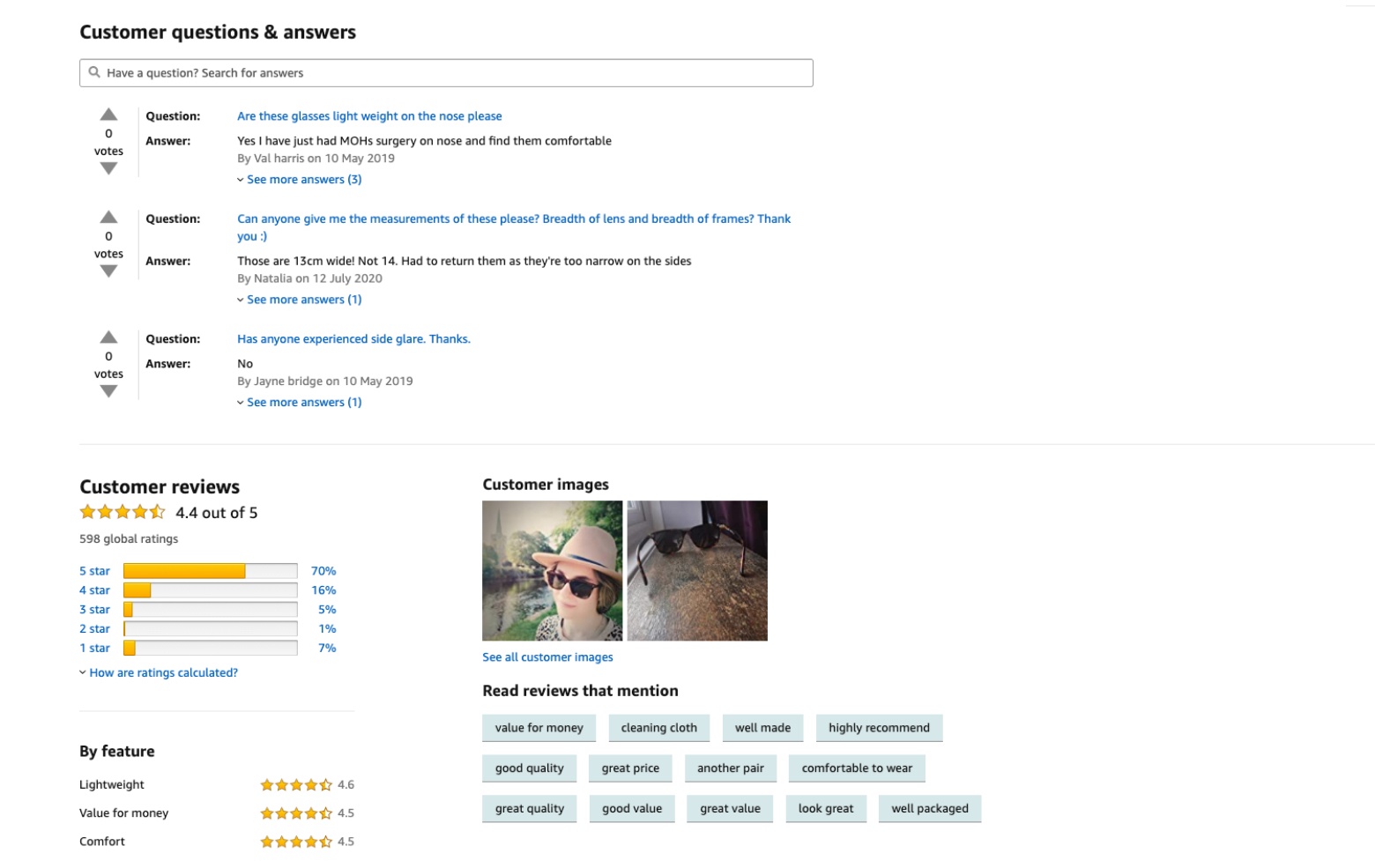
Because Amazon operates at a vast scale, it is both possible and necessary for the site to automate product content. By encouraging user generated content in the form of “Customer Questions and Answers”, the platform is able to give highly detailed and specific product information. Providing answers to the questions that might not occur to a retailer means Amazon loses fewer sales due to missing details.
Unfortunately, most sites are not able to automate content creation as effective as Amazon. So, in order to understand what kind of questions your customers might have, you can use CRO tools like Hotjar, CrazyEgg and even Google Forms. On-site surveys and exit forms give you a way to find out what your customers’ main concerns are. Using that information, you can add specific questions to the review requests you send when someone makes a purchase.
Used by: Booking Best for: Travel websites and luxury brands

Travel websites need customers to book as early as possible, so they often use FOMO notifications to highlight the limited availability of tickets. Alongside this, site like Booking.com highlight the number of people viewing an offer. A page-view counter can be coded into your website using Javascript, or simply by installing a Social Proof app. Popularity Nudges show how many people have viewed an offer or made a recent purchase.
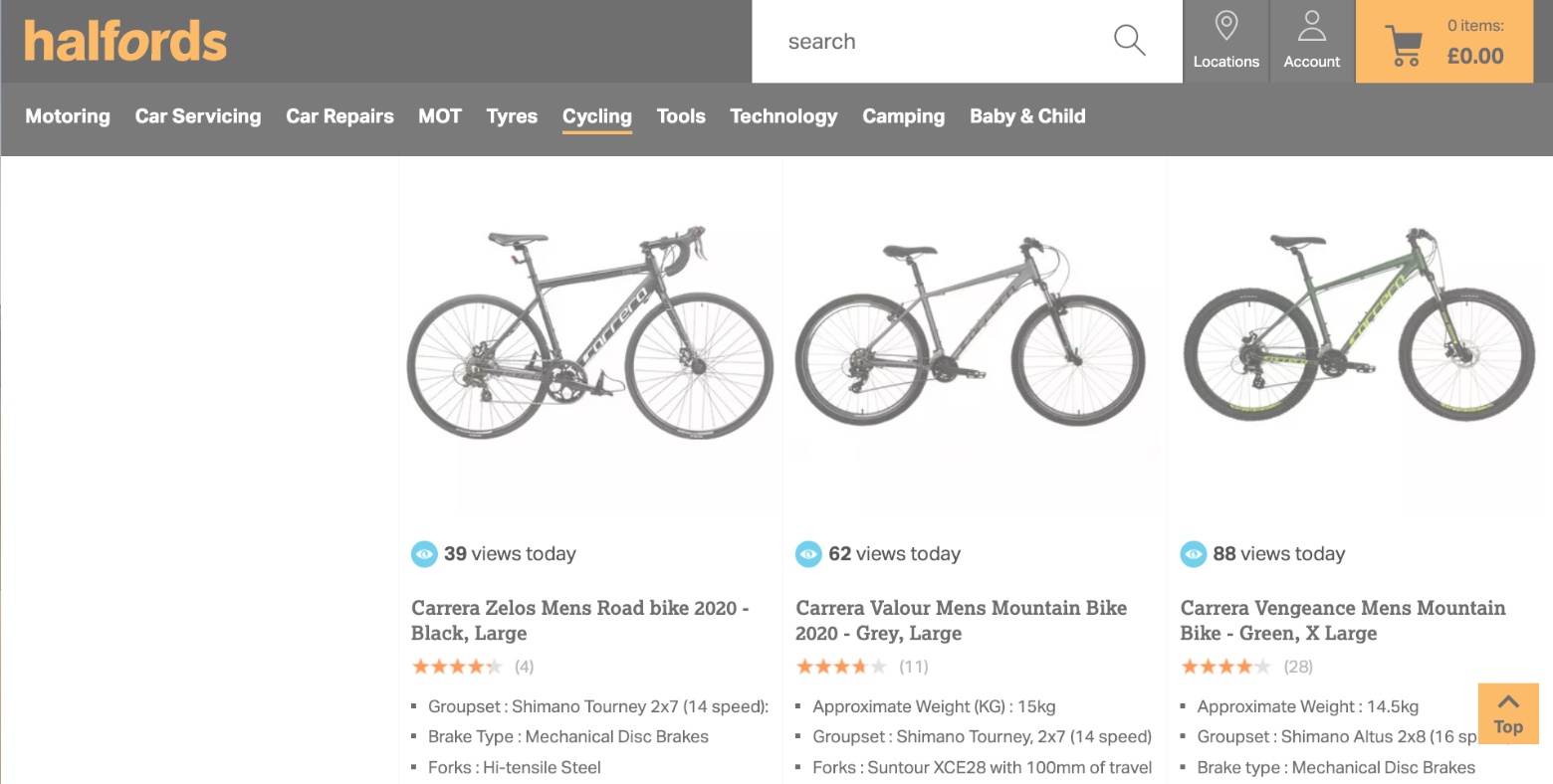
In this product collection, the bicycle shop Halfords displays the number of page views each item has received that day. Alongside the star ratings for each bike, this page view counter gives browsers an immediate sense of which are the most popular options.
Used by: Chilly’s Best for: Luxury and special interest retailers
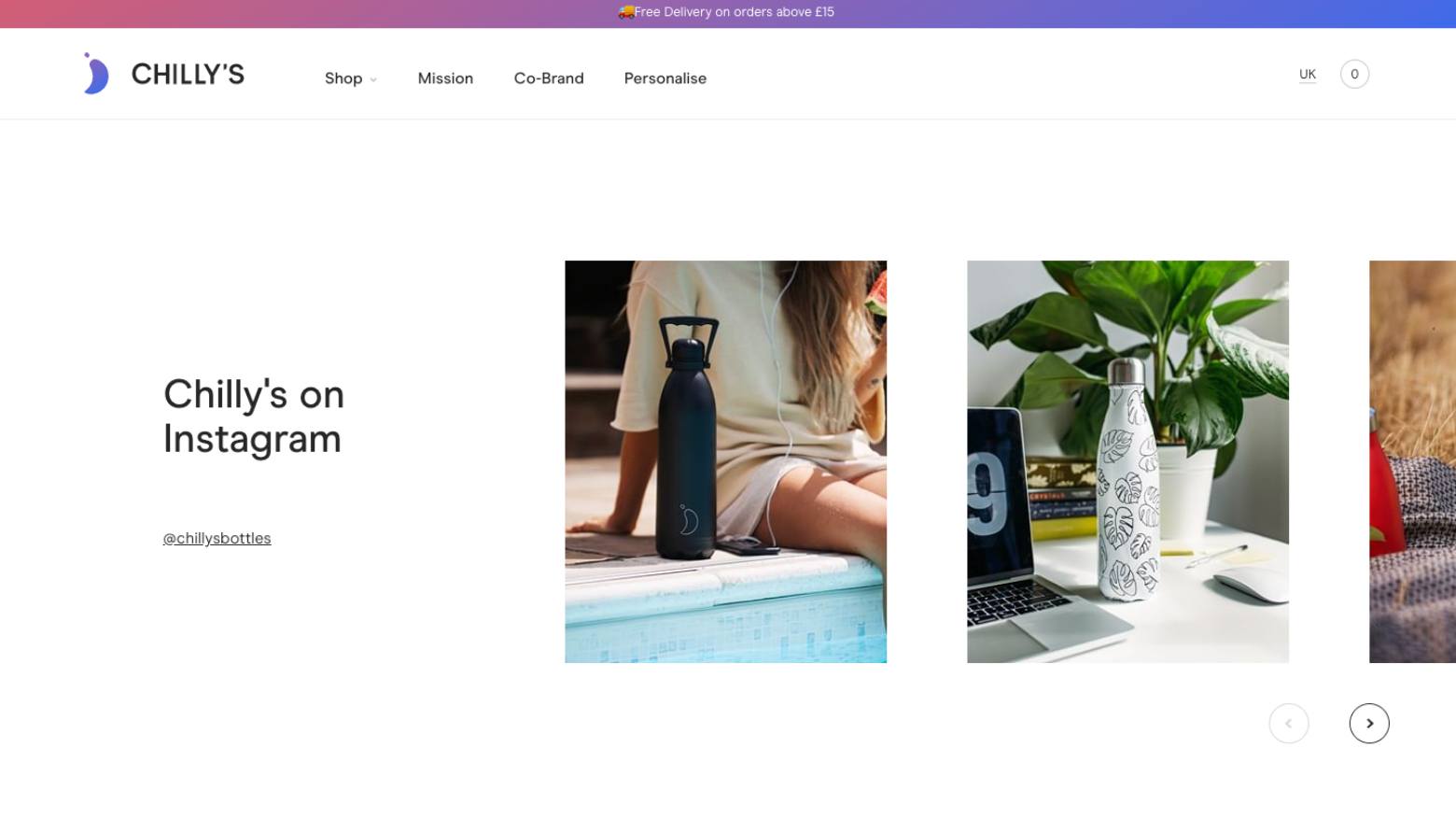
Chilly’s water bottles pioneered a unique promotional strategy combining saturation advertising with influencer marketing. In 2017, the company ran a social media campaign on Twitter with the hashtag #chillyseverywhere and quickly rolled the campaign out across its social media accounts. The campaign prompted over 6000 Instagram posts over the course of a few weeks, each one providing highly-targeted and free advertising.
To leverage the success of this promotional campaign, Chilly’s incorporates an Instagram carousel on its homepage, displaying high-quality UGC to browsers. Shopify provides a selection of plugins offering social media integrations and similar solutions are available for WordPress and other platforms.
Used by: Capterra Best for: Comparison sites, Saas and eCommerce
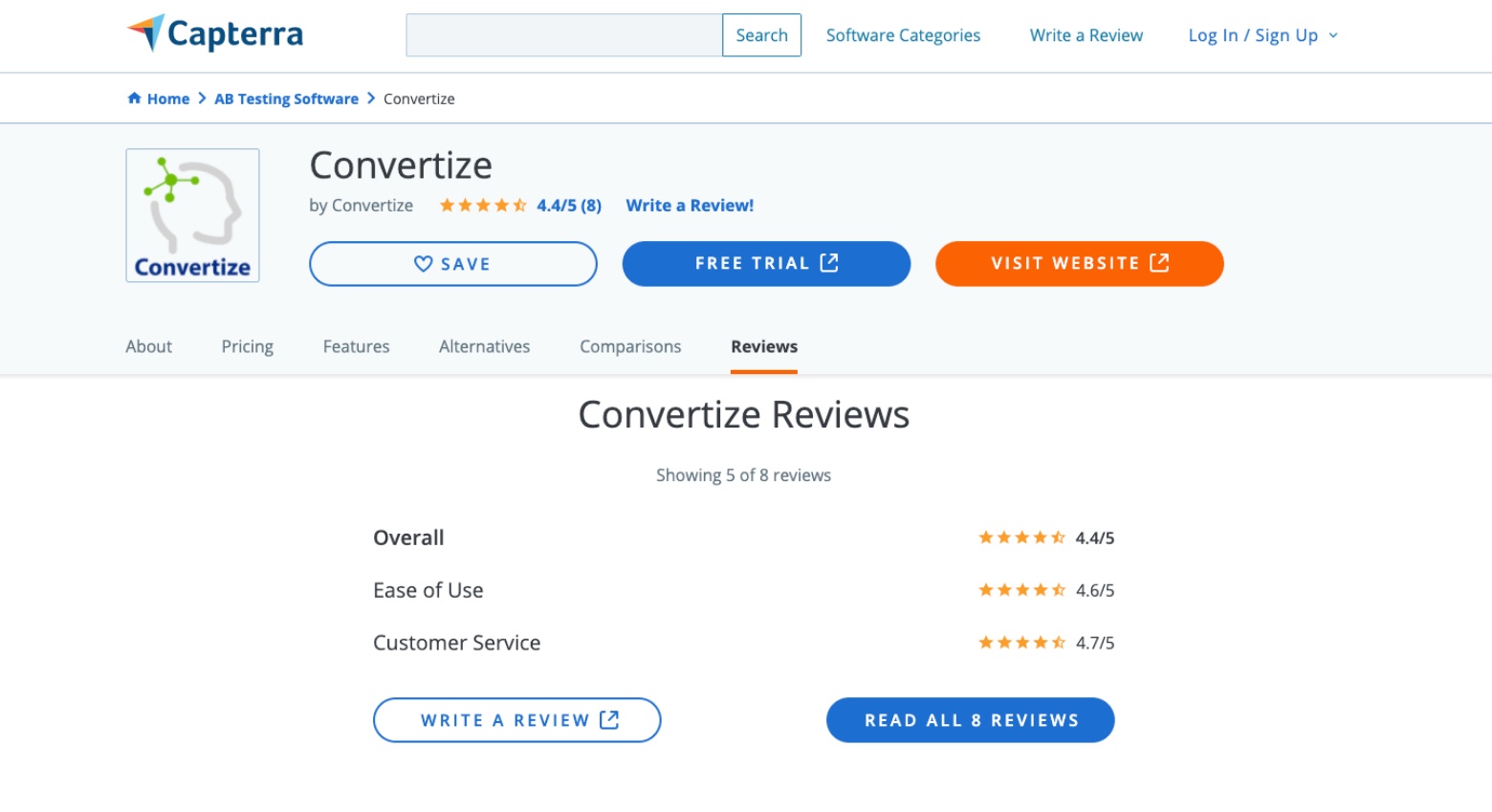
93% of customers spend more than a minute reading reviews before they will make a purchase. If you add the time it takes to compare reviews for different products, it can make buying something online a frustrating experience. By asking customers to rank different aspects of a business or product, you can display more specific ratings in the categories that customers might want to compare. That makes it easier for them to choose an option that suits them, and more likely that they will make a purchase on your site.
Used by: Braze Best for: Saas and technology retailers, leisure services
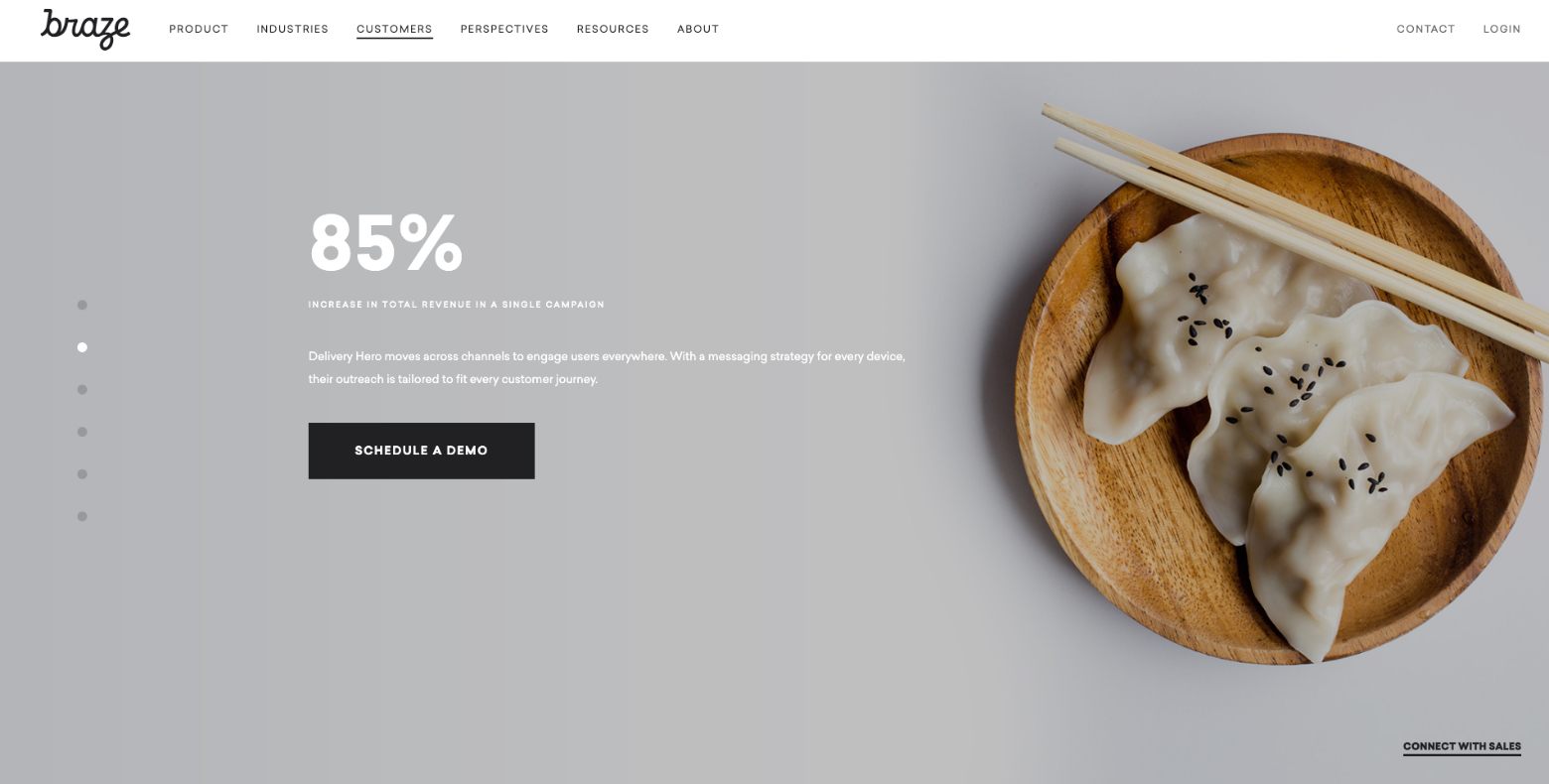
Copywriters are often told that customers care more about “benefits” than they do about “features”. One of the best ways to communicate the benefits of your product, especially if it’s hard to understand, is with use cases. Showing exactly how your product has helped a former client communicates both how it works and what it does. This form of Social Proof marketing is particularly effective if your case study matches your target customer. Because of that, case studies are a subtle way to sort your most promising leads from the rest.
Used by: Bulk Best for: Lifestyle brands
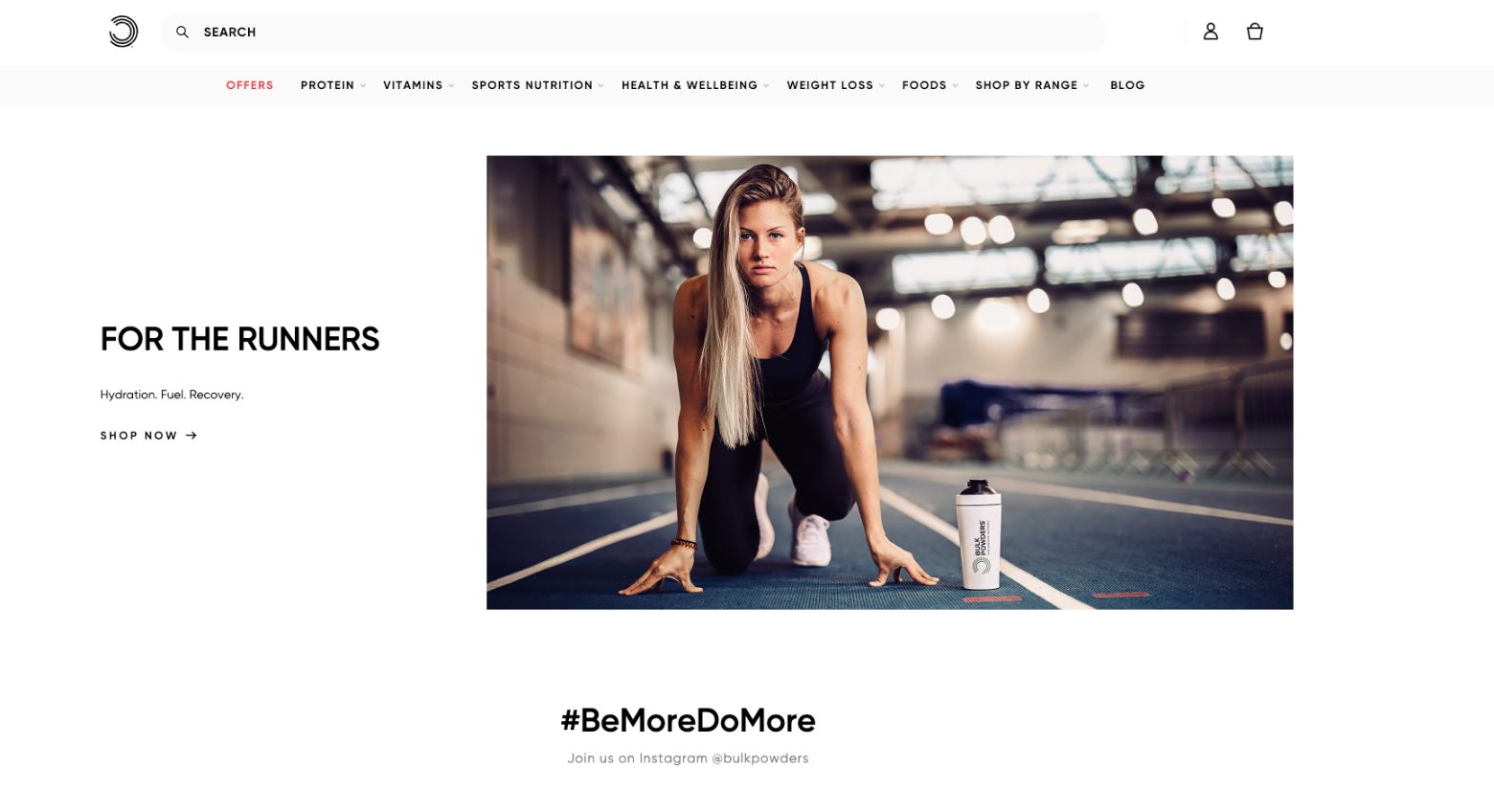
Brands with a clear target audience often appeal their customers’ sense of identity by making products feel exclusive. By associating a product with a particular type of person, brands leverage our desire to belong to that group. Fashion retailers use the same effect by creating product collections for different kinds of customer, and the same principle makes targeted discounts more appealing.
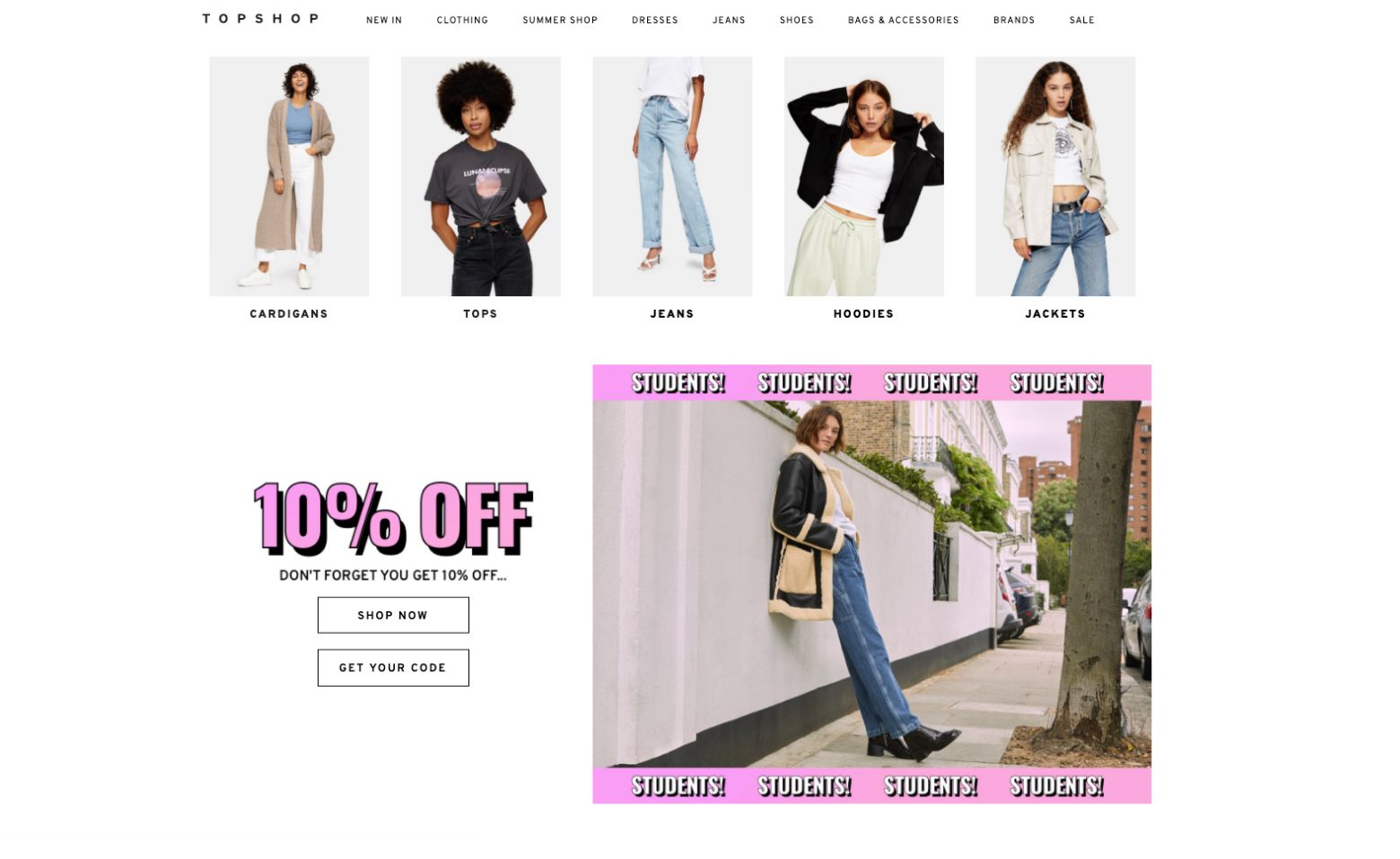
Group membership is an important part of how we define ourselves, leading us to conform with similar people. Presenting a product as a way of participating in a group is a powerful form of Social Proof marketing that also helps to build your brand.
Used by: Hotter Best for: eCommerce, retail and travel websites
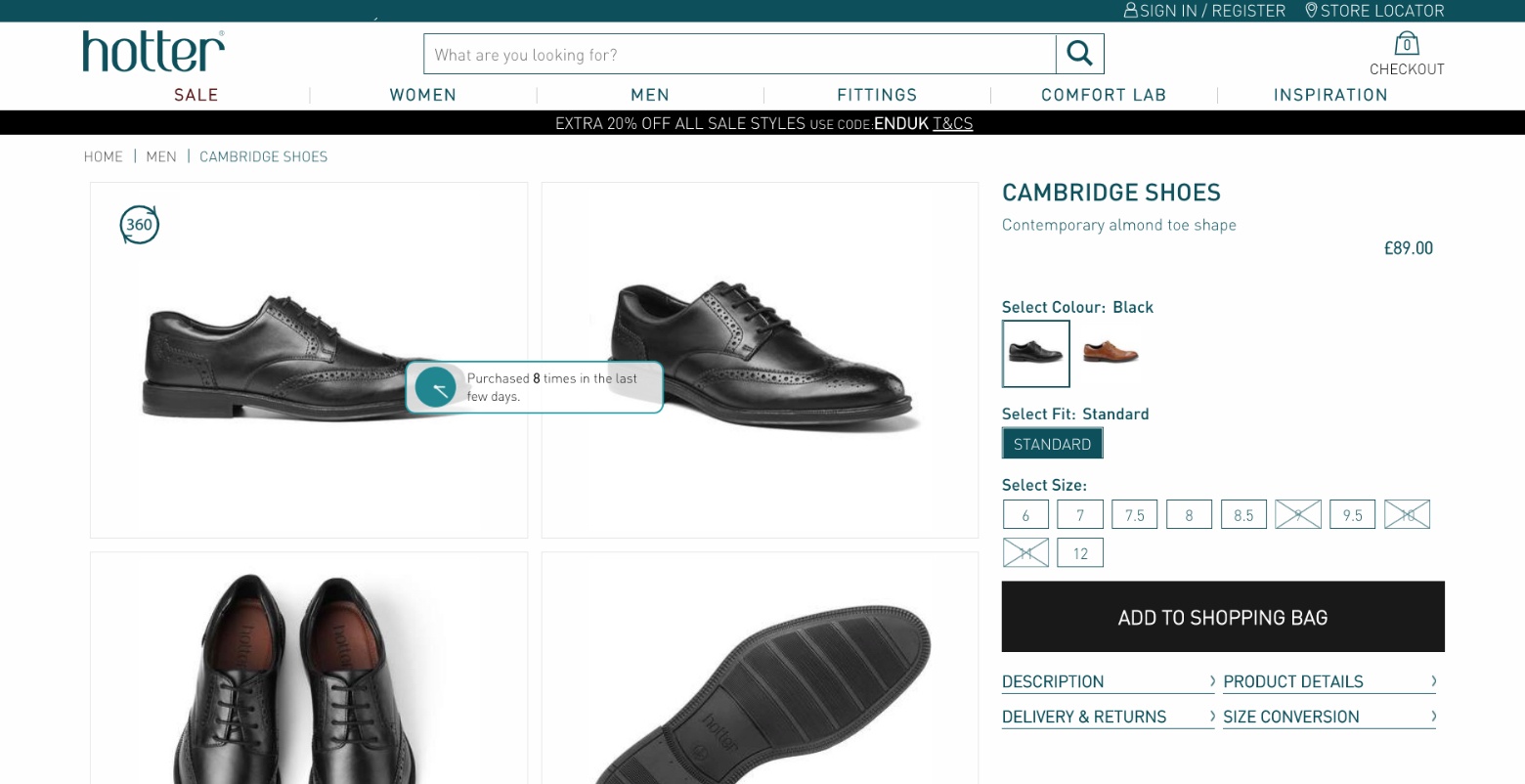
Showing visitors that an item is being purchased regularly builds credibility for both the store and the product itself. It also creates a sense of urgency, because visitors don’t know if the item will sell out soon.
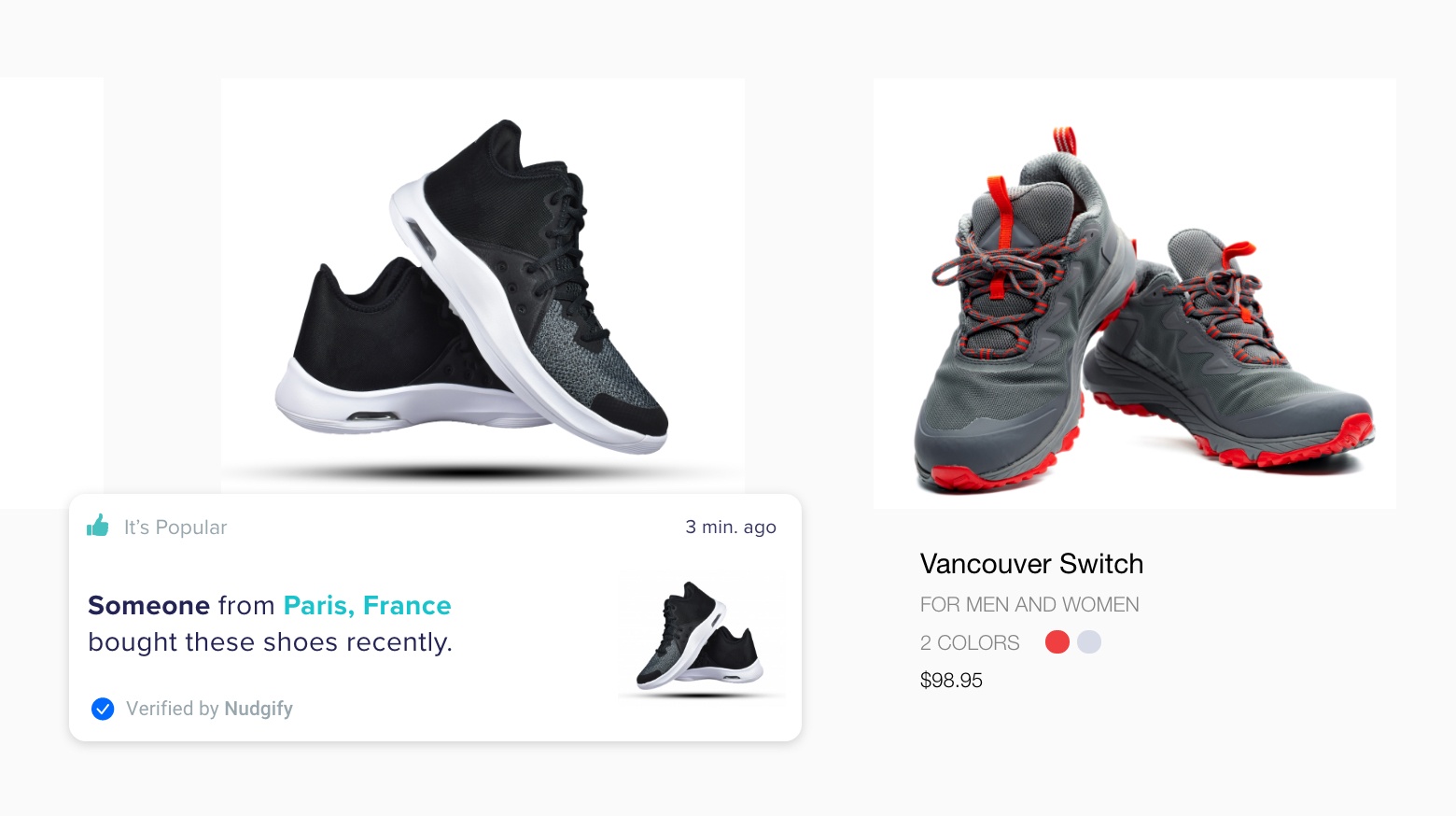
“Recently sold” notifications – also called “Sales Pops” – turn inert pages into active spaces, bringing your visitors into the here and now. By doing this, they recreate the immediacy of real-world shopping.
Used by: Walmart Best for: eCommerce, restaurants
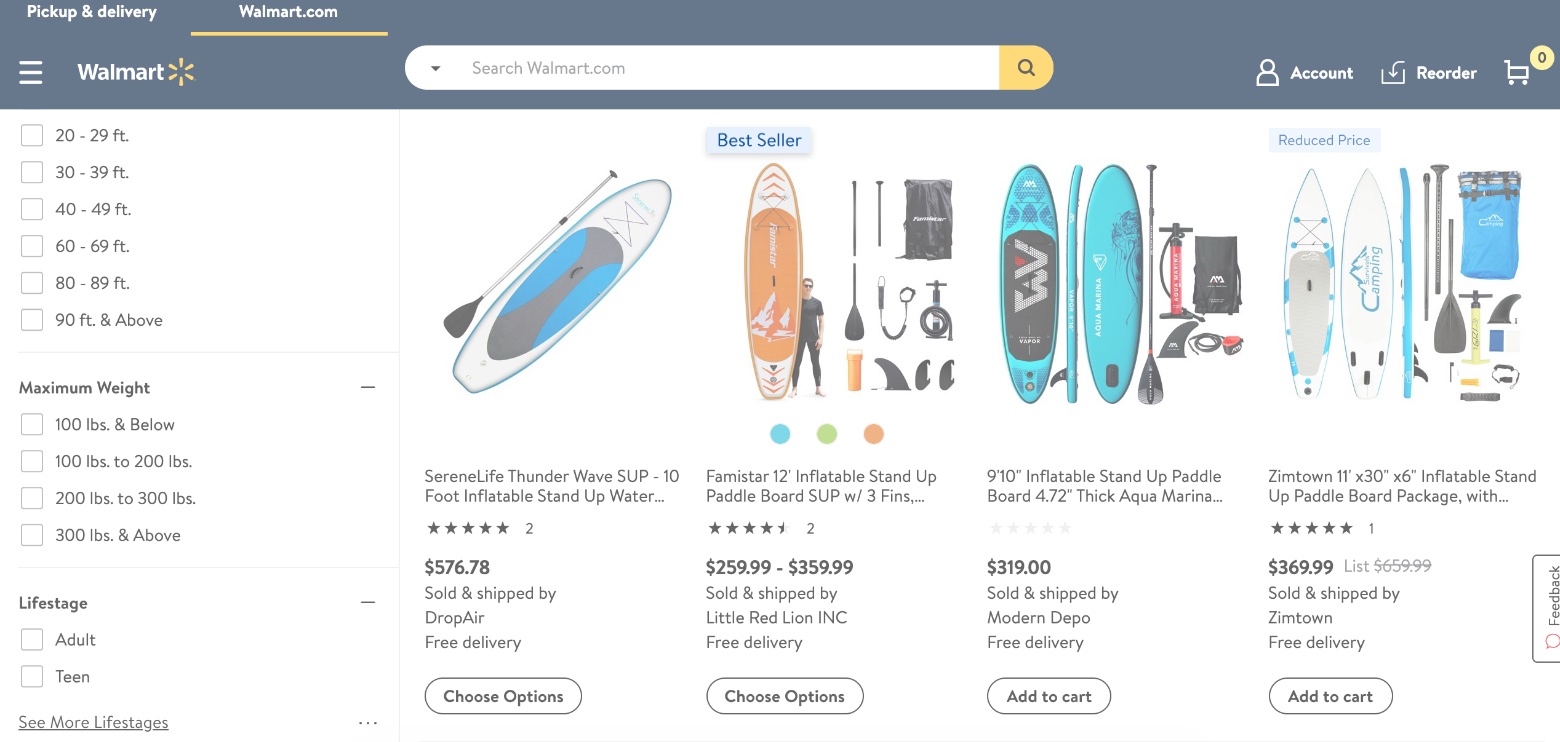
Shoppers frequently encounter an unmanageable range of choices. The Paradox of Choice, which occurs when we have so many options it becomes difficult to choose, can be overwhelming. It can even prevent us from making a purchase. To avoid overwhelming customers, stores like Walmart create default options by tagging popular items. These tags help customers make sense of collections more easily, so the stores lose fewer sales to choice paralysis.
Whilst an item’s popularity might not seem relevant, it gives the browser valuable social context. For example, knowing what most people are willing to pay for an item gives a customer a benchmark to use.
Used By: Dove Best for: Everyday brands
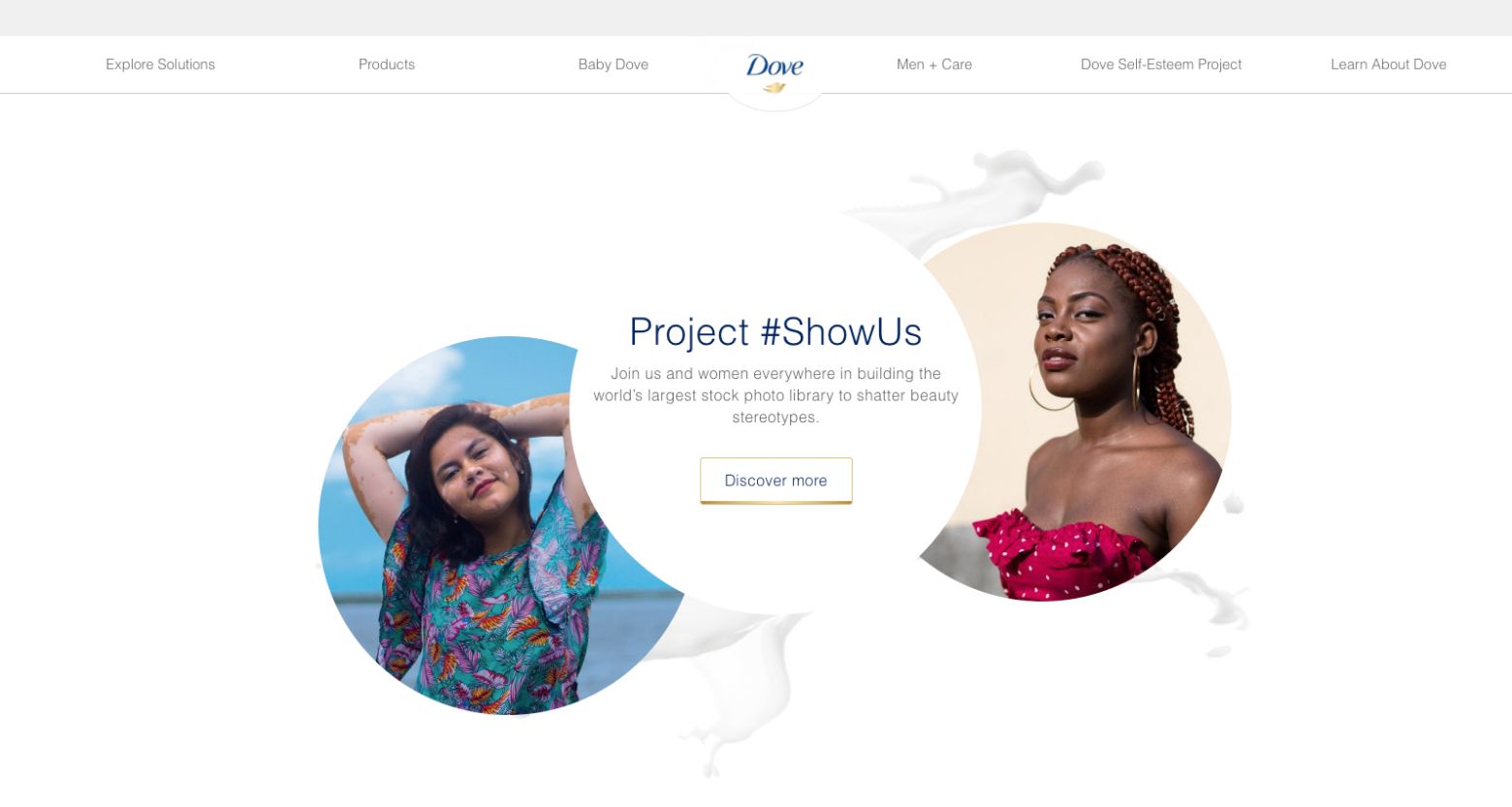
Brands like Dove use Social Proof marketing to build a sense of cultural affinity with their users. Initiatives like Dove’s “Real Beauty Pledge” build positive brand associations and signal the social groups the product is designed for. Buying the product then becomes both a positive choice and statement of identity.
Used by: Tesco Best for: eCommerce and retail
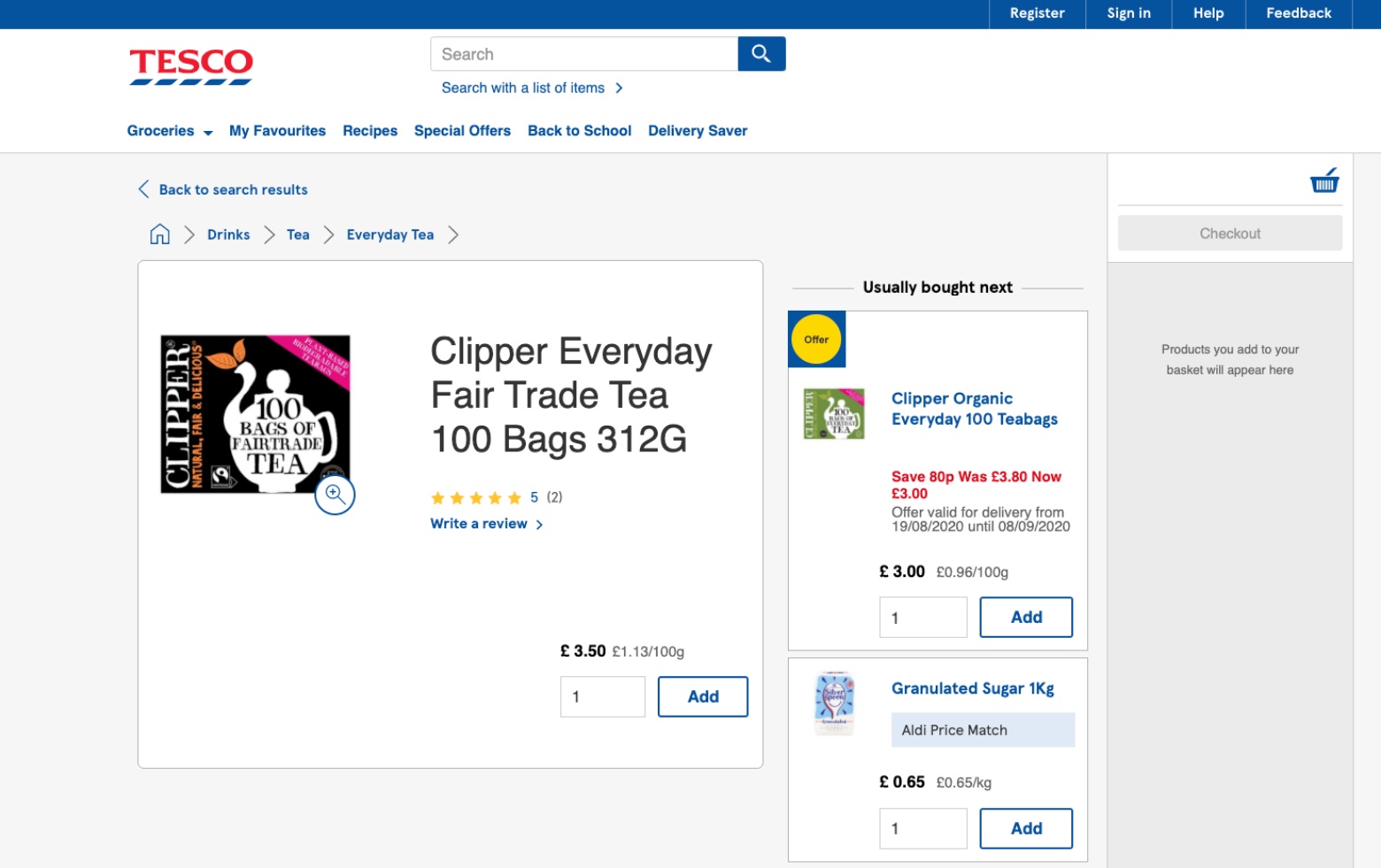
Social Proof marketing can increase both your conversion rate and your average order value. E-commerce websites and supermarkets use “people also viewed” elements to provide more accurate product recommendations. These recommendations have added impact because they seem to be endorsed by other people. An alternative strategy is to use your website’s user date to create common product bundles. By bundling products into groups, you can display “People who bought this, also bought…” messages on your product and basket pages.
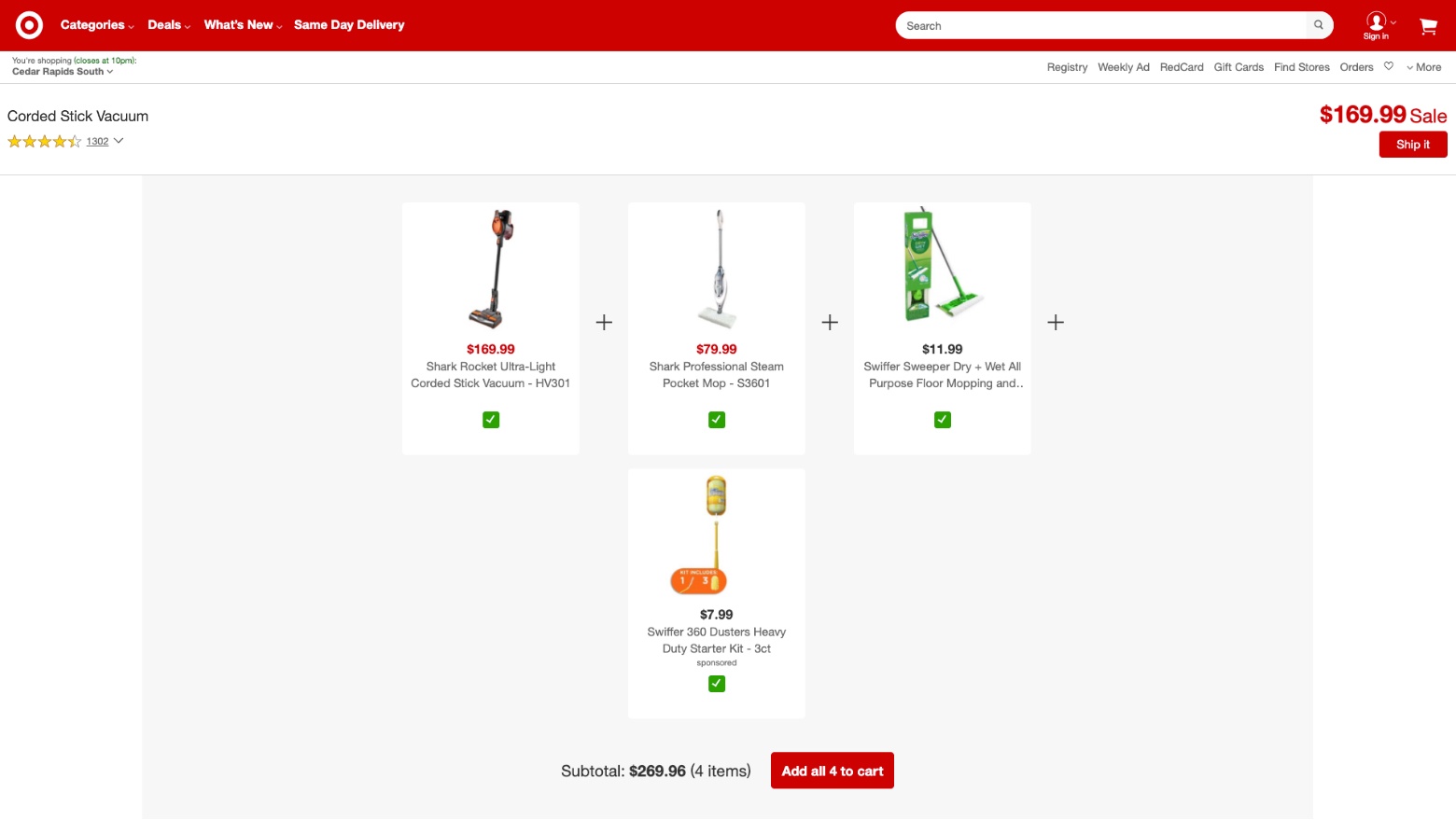
Adding “people also bought” bundles to your sales funnel has three major advantages:
- The Social Proof boosts your credibility and makes it more likely your customers will complete their purchases
- The message encourages customers to add more items to their basket – increasing your average order value.
- Even if the customer doesn’t make any of the additional suggested purchases immediately, the message will give them ideas for the weeks or months ahead.
Websites that combine Social Proof with their product bundles are likely to attract more returning customers and achieve a higher customer lifetime value.
Used by: Amazon Best for: eCommerce, SaaS
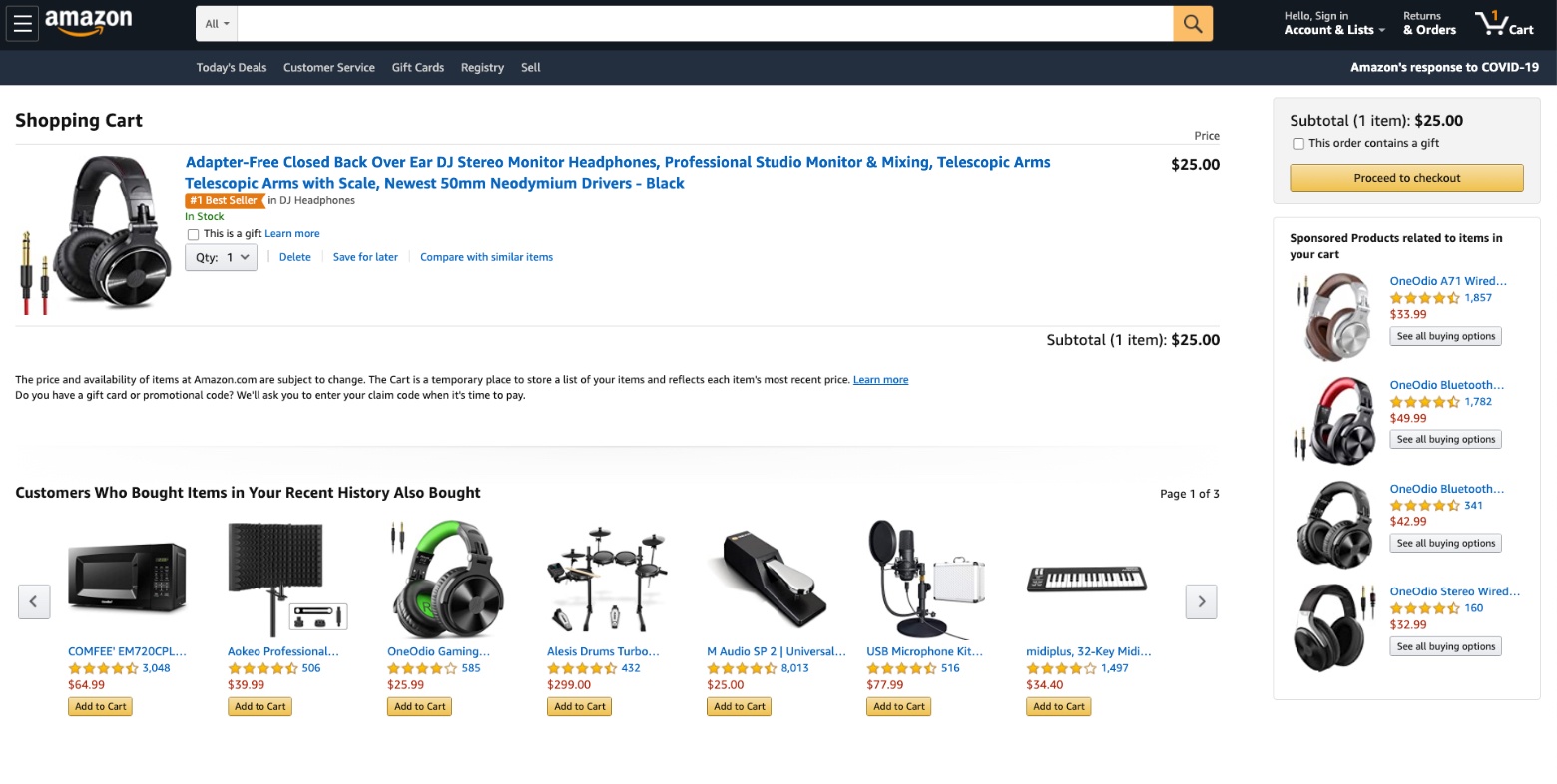
In the moments after a customer makes a purchase, Amazon’s post-purchase email sequence is triggered. As part of the platform’s famous “customer obsession“, these emails are designed to increase customer satisfaction and collect the information needed to improve its service. However, Amazon has found ways to post-purchase satisfaction even before the first email is sent.
Choice closure occurs when we are satisfied that we have made the right decision. It helps to increase the pleasure we feel when making a purchase and reduces the pain of paying. By showing a customer that the item they have selected is a “best seller”, Amazon helps to remove any uncertainty associated with the purchase. This form os Social Proof marketing reassures the customer and improves their overall experience.
Used by: Maxfactor Best for: Services and luxury products
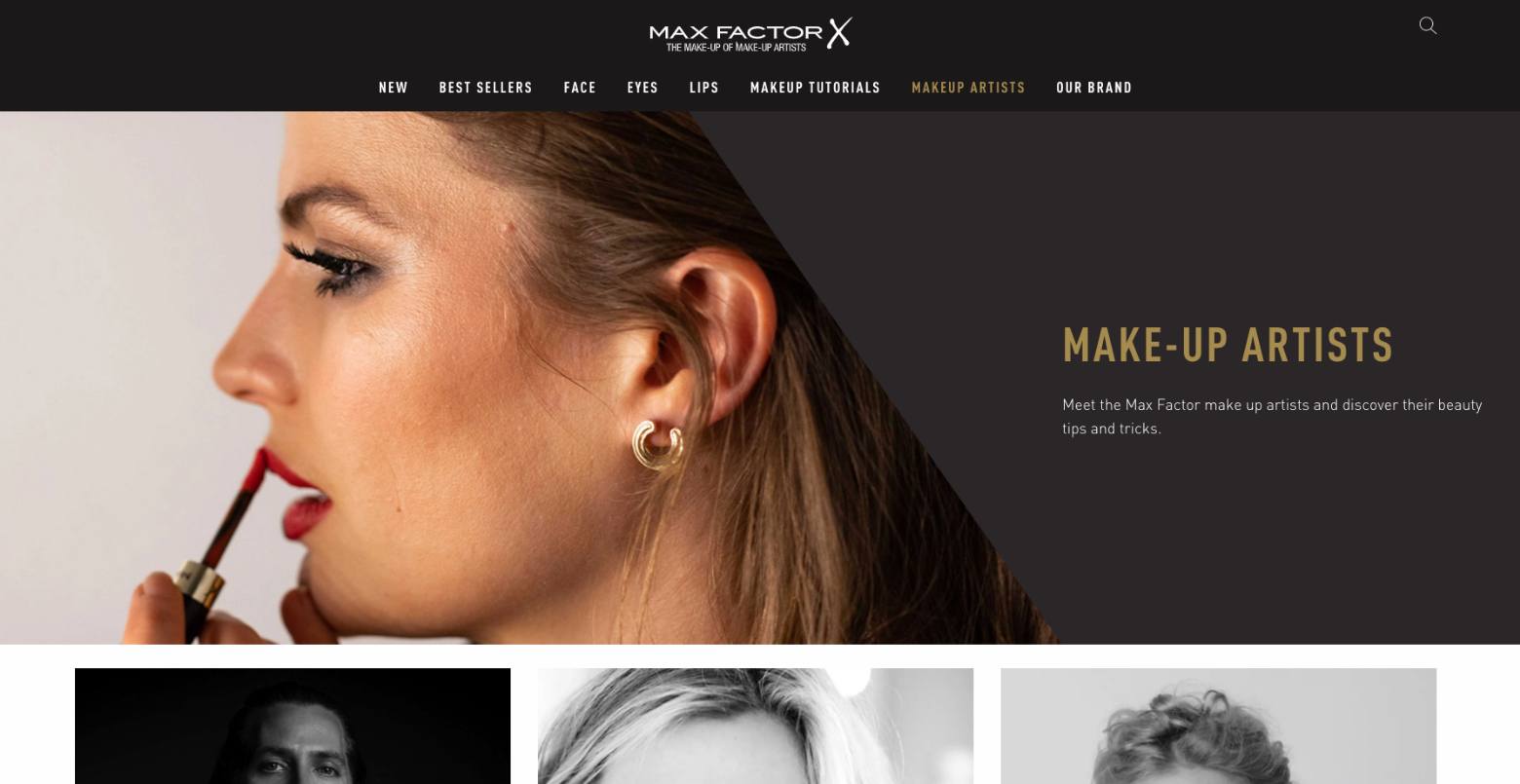
Social Proof is an important part of branding. A number of the world’s most famous brands are built on the assumption that they are the default choice for consumers. Similarly, brands will often present themselves as the preferred option for experts or professionals. As with Colgate’s controversial 2007 advertisement, in which the brand claimed to be recommended by 80% of dentists, the makeup brand MaxFactor describes itself as “The Make Up of Make Up Artists.”
Consumers are presented with a vast amount of promotional content, most of which they ignore. One of the best things about Social Proof marketing is that it promotes your products without appearing biased, meaning that Social Proof avoids the banner-blindness that affects adverts and other promotional content.
Reviews are so important that many of the biggest online brands use dedicated reputation management tools. Not only does this improve brand awareness, but it also increases customer satisfaction. Just knowing that you’re paying attention to your customers and responding to their feedback can lead to better reviews and more repeat customers. Because of that, Social Proof is one of the most important factors when it comes to reducing your acquisition costs.
